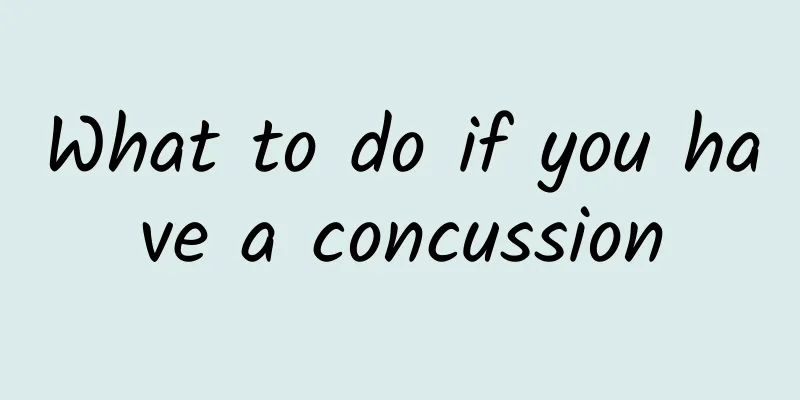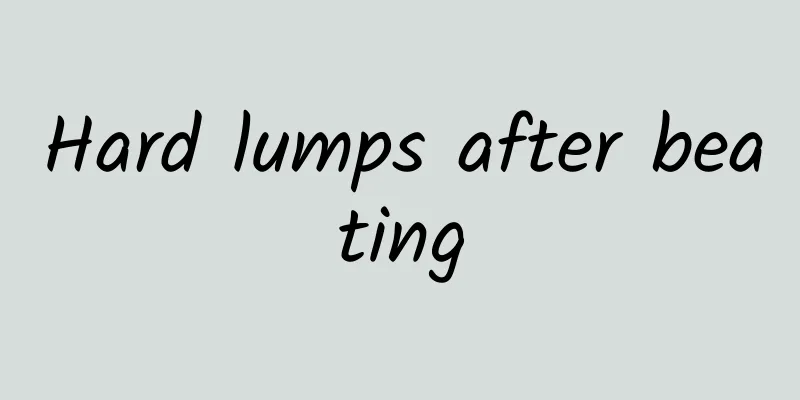What to do if you have a concussion

|
Concussion is a common temporary dysfunction of the central nervous system in daily life. It is mainly caused by some temporary loss of consciousness after some mild violent blow to the head. There are some obvious changes in the nervous system, which makes life full of its main symptoms are transient brainstem symptoms, that is, consciousness disorder manifested as unconsciousness or complete coma. Here we introduce what to do in case of concussion. At the same time, in daily life, some neurological symptoms mainly occur, so timely medication treatment must be taken in daily life. In daily life, the main thing is symptomatic treatment according to the condition, and then medication treatment based on the last improvement. 1. Transient brainstem symptoms: Impairment of consciousness occurs immediately after trauma to the head, manifested as confusion or complete coma, lasting for several seconds, minutes or tens of minutes, but generally not more than half an hour. The patient may also experience symptoms such as pale complexion, sweating, decreased blood pressure, slow heartbeat, shallow and slow breathing, decreased muscle tone, and slow or absent various physiological reflexes. In most patients with reversible mild concussion, the central nervous system function recovers rapidly from bottom to top, from the cervical spinal cord-medulla oblongata-brainstem to the cerebral cortex; while in irreversible severe concussion, it may be a top-down inhibition process, which interrupts the function of the medullary respiratory center and circulatory center for too long, thus leading to death. 2. Retrograde amnesia (recent amnesia): After the patient regains consciousness, he cannot recall the situation at the time of injury or even a period of time before the injury. The more severe the concussion and the longer the primary coma, the more obvious the recent amnesia is, but he can recall past events (remote memory). This may be related to damage to the hippocampus. 3. No positive signs were found in neurological examination. 4. Patients in the recovery period of concussion often have symptoms such as dizziness, headache, nausea, vomiting, tinnitus, insomnia, etc., which usually disappear gradually within weeks to months. However, some patients have long-term symptoms such as dizziness, headache, insomnia, irritability, inattention and memory loss. Some of them are recovery symptoms. If there is no obvious improvement after 3 to 6 months, in addition to considering whether there are mental factors, detailed examination and analysis should be carried out to see if there is any delayed damage. Do not use the term "sequelae of concussion" to sum it up, which will increase the mental burden of the patient. Medication treatment 1. Observation of the condition: The patient can be observed in the emergency room for 24 hours after the injury, paying attention to changes in consciousness, pupils, limb movements and vital signs. For patients who return home, their family members should be asked to pay close attention to headache, nausea, vomiting and consciousness for 24 hours. If symptoms worsen, they should come to the hospital for examination. 2. For symptomatic treatment of severe headache, advise the patient to rest in bed and reduce external stimulation. You can give him/her Rotundine (Rotonidine) or other analgesics. Diazepam (Valium), chlordiazepoxide (Librium), etc. are given to those who are irritable, anxious, or insomniac. Drugs to improve autonomic nervous function, neurotrophic drugs, and calcium ion blockers such as nimodipine can also be given. 3. The patient’s condition should be explained immediately after the injury, and it should be explained that the disease will not affect his daily work and life, so as to relieve the patient’s concerns. The above is what to do in case of concussion. In medicine, there must be different dietary requirements for different diseases according to different situations. Adopt some different dietary standards. Treat the disease symptomatically and then use medication based on the last improvement. At the same time, in daily life, you must carry out correct prevention and care, early detection and early treatment, and conduct some hospital examinations and prognosis examinations. |
Recommend
What to do if your lips are chapped and peeling? Here are four tips for lip care
It is inevitable that lips will become chapped in...
What are the symptoms of brain tumors? Be careful of these 10 symptoms
The early symptoms of brain tumors are not obviou...
How long can you live after thyroid cancer surgery?
The appearance of a tumor will directly endanger ...
Stomach pain, brown discharge
Lower abdominal pain accompanied by white-brown s...
What ointment to use for genital herpes
Genital herpes is a relatively common disease. If...
Is American ginseng a diuretic?
I believe everyone has heard about the role of Am...
What are the effects of changing milk powder on babies?
For babies, milk powder is also very important an...
Early manifestations of sepsis in children
Pediatric sepsis can have a huge impact on the he...
Symptoms and treatment of sequelae of pneumothorax surgery
In clinical practice, if the pneumothorax surgery...
How to quickly eliminate fat particles under the eyes?
Everyone hopes that their eyes will be very beaut...
Blood clots during menstruation are a disease you cannot ignore
We all know that normal menstruation is liquid. H...
Side effects of Isatis indigo
Isatis indigotica is a plant and also a tradition...
Banana leaves can be used as medicine
Banana is a common plant in our lives. Its leaves...
Dark brown menstrual flow
The menstruation of normal women is regular, once...
My arm hurts when I move it backwards. Why?
There are many joints in the human arm, so the ar...









